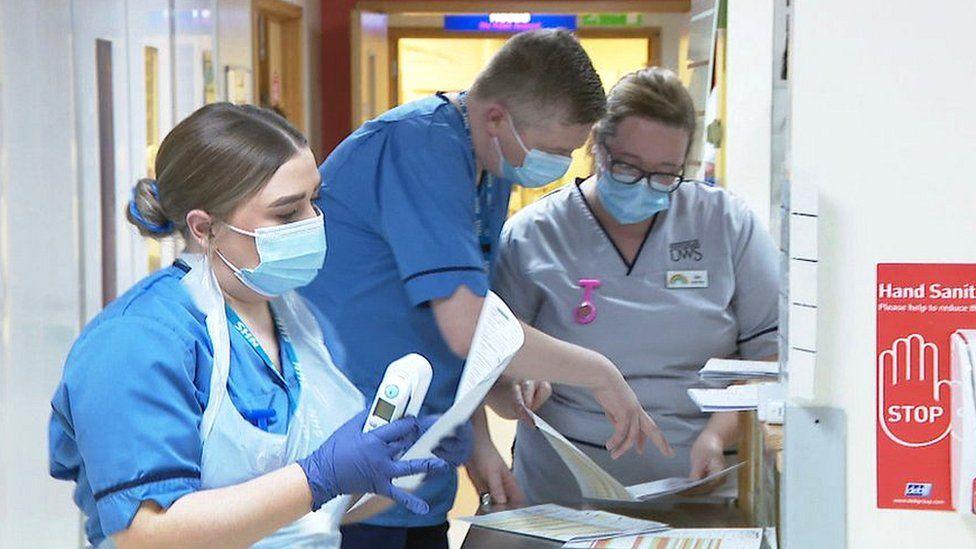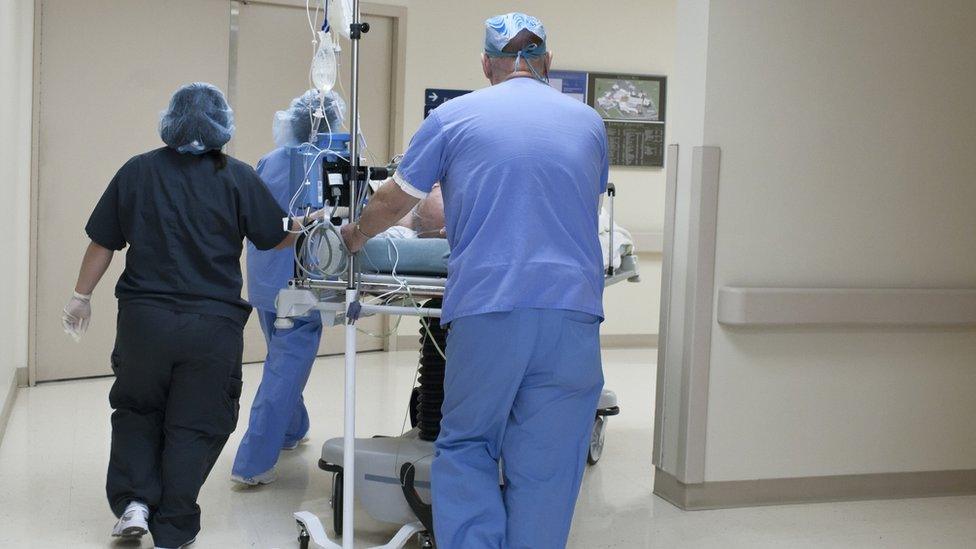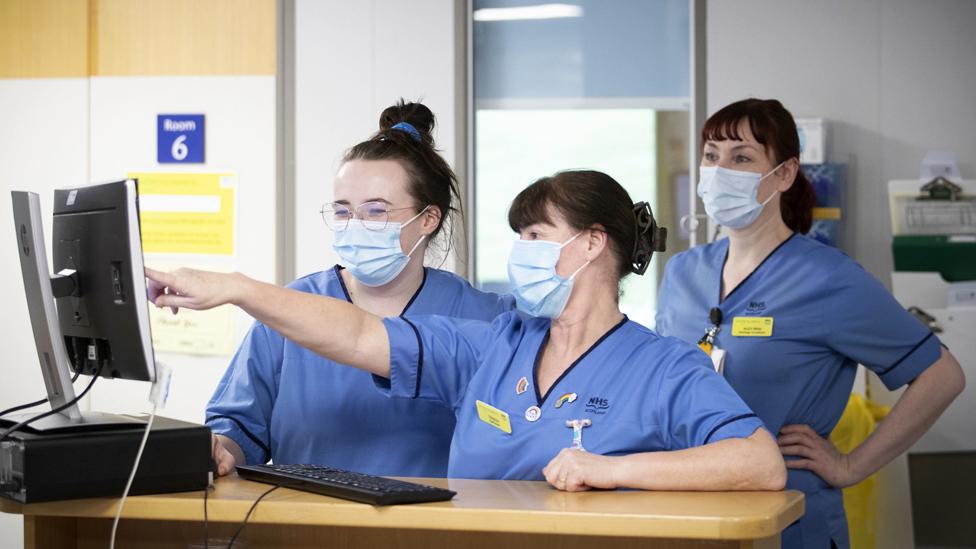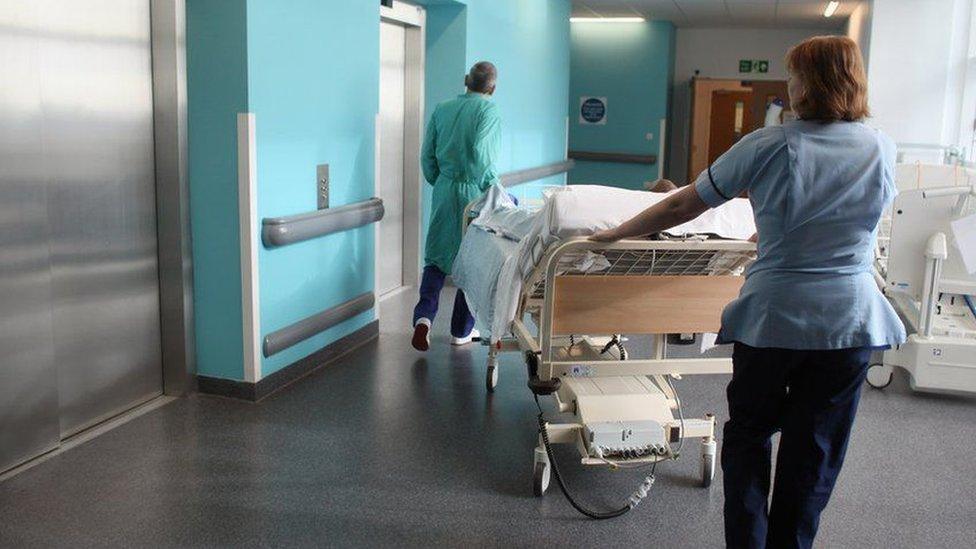What does the budget mean for Scotland's NHS patients?
- Published

The health service is stretched like never before. There are record waits in accident and emergency and delays in getting patients home after treatment.
Now the government needs to find an extra £400m to fund a pay increase for healthcare staff.
After the Scottish budget statement, you could read newspaper headlines warning of a "raid on the NHS budget" and "dangerous" cuts to services. So what does it mean for patients?
The first thing to say is that it's important to keep the figures in context. While £400m is a lot of money, the health and social care annual budget stands at £18bn - by far the biggest proportion of Scotland's overall budget.
The government says it is not cutting that back but instead is redistributing money. It says this won't impact on existing services.
Instead it may mean some programmes where money was due to be spent will be paused or pushed back to next year. There will also be no slack in the system so no reserves for a rainy day.
Dig into the figures and you can see that some savings have already been made. The government had put aside money to deal with the pandemic but testing is being wound down and they can use up stocks of protective equipment in the anticipation there will be less demand.
However, what worries the medical professionals that I've been speaking to is a lack of detail in this budget.

The British Medical Association, which represent doctors, warns that the health service is already in a precarious state and that the majority of this money is being taken from the areas that need it most.
Dr Iain Kennedy, chair of BMA Scotland says £53m has already been pulled from money promised to employ wider healthcare teams in GP surgeries. He says this will mean fewer mental health workers, pharmacists or physiotherapists supporting GPs.
Social care, GPs and mental health are the areas he highlights as under being pressure. Not as high profile as A&E or surgery perhaps, but still vital frontline services and, he says, patients are going to notice the difference.
The budget also set out that £70m is coming out of the social care. The majority of that should come from stripping out reserves and pushing back existing work on parts of the National Care Service bill to next year. That's already a hit for one of the government's top priorities for this parliament.
Then you add in £38m from mental health. Again the government stresses this comes against an overall rise in mental health spending. In all, £290m was set aside for mental health this year.

They say within the revised budget they will seek to focus on existing commitments including clearing child and adolescent mental health waiting times.
But if you talk to Dr Pavan Srireddy, a consultant psychiatrist and policy lead at the Royal College of Psychiatrists in Scotland, he has a different view. He argues in the midst of a mental health and cost of living crisis, we need to be spending more on mental health not less.
He tells me that in the 20 years he has worked in Glasgow he has never seen people so desperate for help or seen services as stretched. Put simply, he says, services are already stretched to breaking point and he can't see how services can cope with rising demand if the funding isn't there.
And the fear is that there may be more to come. A number of unions have rejected the pay offer and are threatening strike action and junior doctors have only started to negotiate on pay increases.
Finance Secretary John Swinney has made it clear there is no more money on the table. In December he will have to set a budget for next year amidst rising inflation and a cost of living crisis.
This may only be the beginning of difficult times for the NHS.
Related topics
- Published3 November 2022

- Published31 October 2022

- Published30 October 2022
